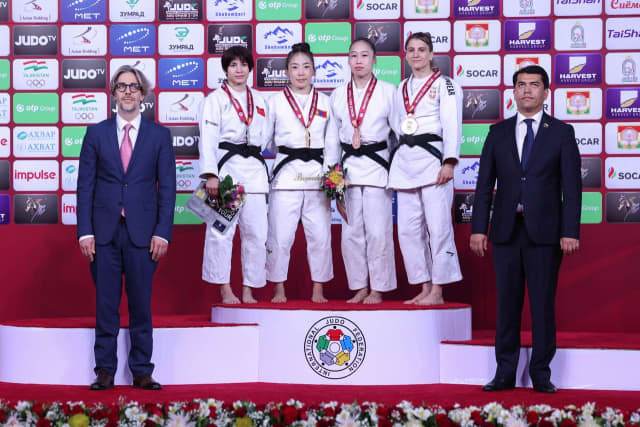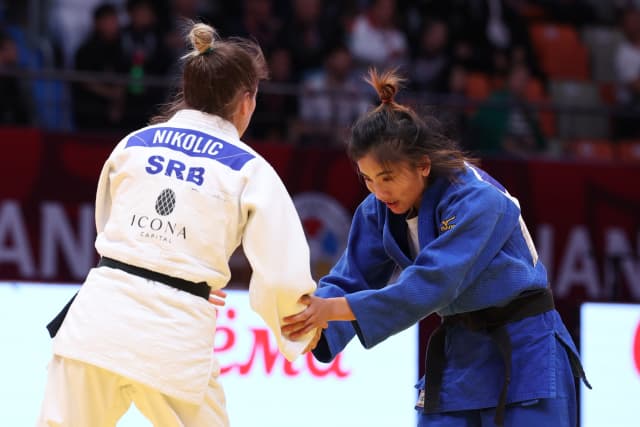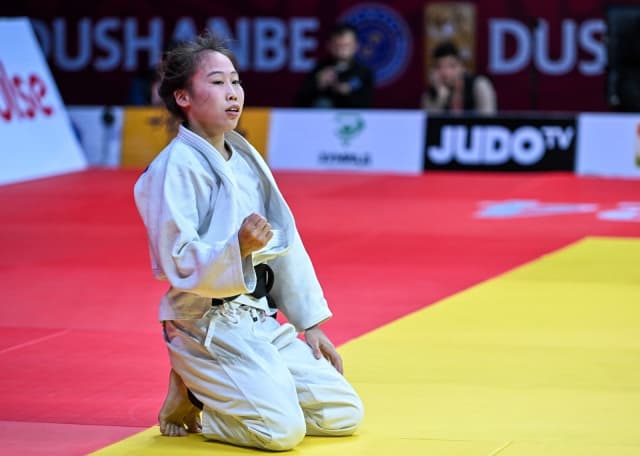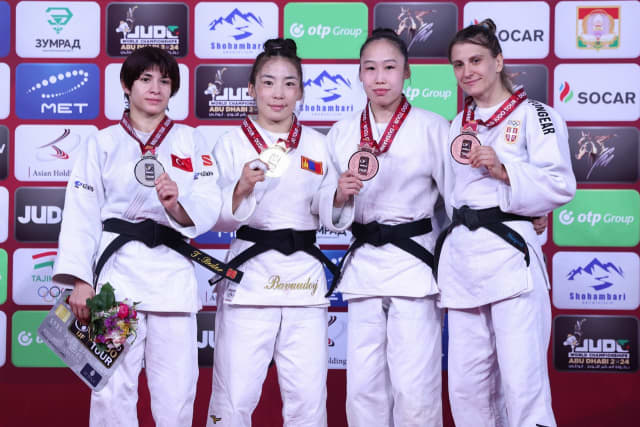Nikolic would not go down the same way and she dispatched her Vietnamese challenger quickly and then passed Moiseeva (AIN) too. Her semi-final was predicted to be against the Korean, Lee, but Lee didn’t make it, losing out to Perrot of France in her first contest. Perrin didn’t make it either though, losing to the unseeded Turk, Beder, by a single waza-ari.
Nikolic could have been forgiven for having quiet confidence ahead of the semi-final but it would have been misplaced as Beder led by another single waza-ari and moved into the final, climbing over the higher ranked athletes on her side of the draw to do so.
On the bottom half of the draw Catarina Costa, fresh from the Europeans with a bronze medal in tow, began strongly, clearly buoyed by her performance a week ago. But last year’s Dushanbe Grand Prix gold medallist, Marusa Stangar (SLO), had no intention of giving up her title and despite not reaching a final since Dushanbe 2023, she plowed forward passing Costa (POR) in ne-waza to reach the semi-final. There was potential for a fairytale to ensue for Stangar, with these points being important at this moment in the qualification period but it wasn’t to be.
Baasankuu Bavuudorj (MGL), seeded 3rd, managed each of her contests expertly. Esposito (MLT) went down via armlock, Guo (CHN) via uchi-mata and Perez Soler lost on penalties, placing the Mongolian opposite the Slovenian for a place in the final. Stangar didn’t get her wish and Bavuudorj headed into the final block to face Beder.
The first bronze medal fight was contested by Moiseeva and Stangar. It was a close contest with a lot of movement but a fully committed ne-waza sequence led by Moiseeva ended with the Slovenian submitting sending a first ever World Judo Tour medal home with her. At just 21 years old it could be the blossoming of a great career and give judo fans a new youngster to watch.
The second bronze medal was headed to either Portugal or Serbia. It began with a flurry of attacks, both competitors willing to engage in either tachi-waza or ne-waza but a head-diving action from Costa finished the contest prematurely and Nikolic, having followed the rules more precisely, claimed her place on the podium.
Beder wanted to be the more active participant in the final, launching under Bavuudorj with tomoe-nage after tomoe-nage but with no reward. Bavuudorj took up the challenge and met the pace, left-sided seoi-otoshi attacks offering a risk to the Turkish judoka. They began to amass penalties from small infringements but the contest continued for almost 4 minutes of extra time until Bavuudorj found a new gear and out-attacked Beder for several exchanges. The third penalty for one brought a huge smile to the Mongolian’s face as she earned her first ever grand slam gold.










